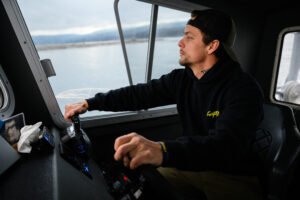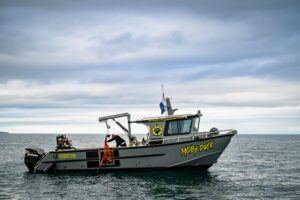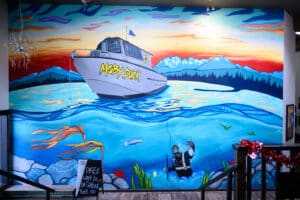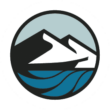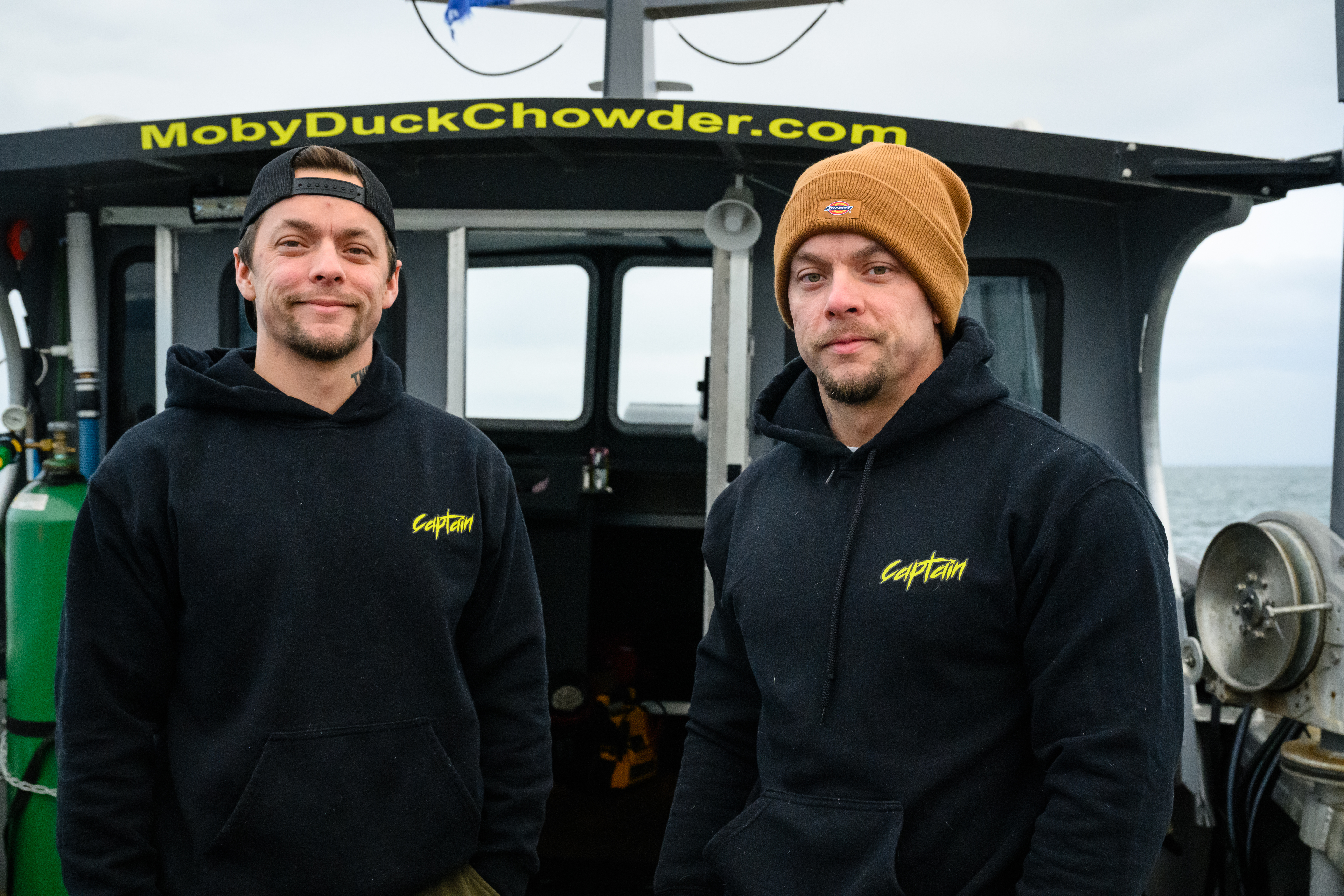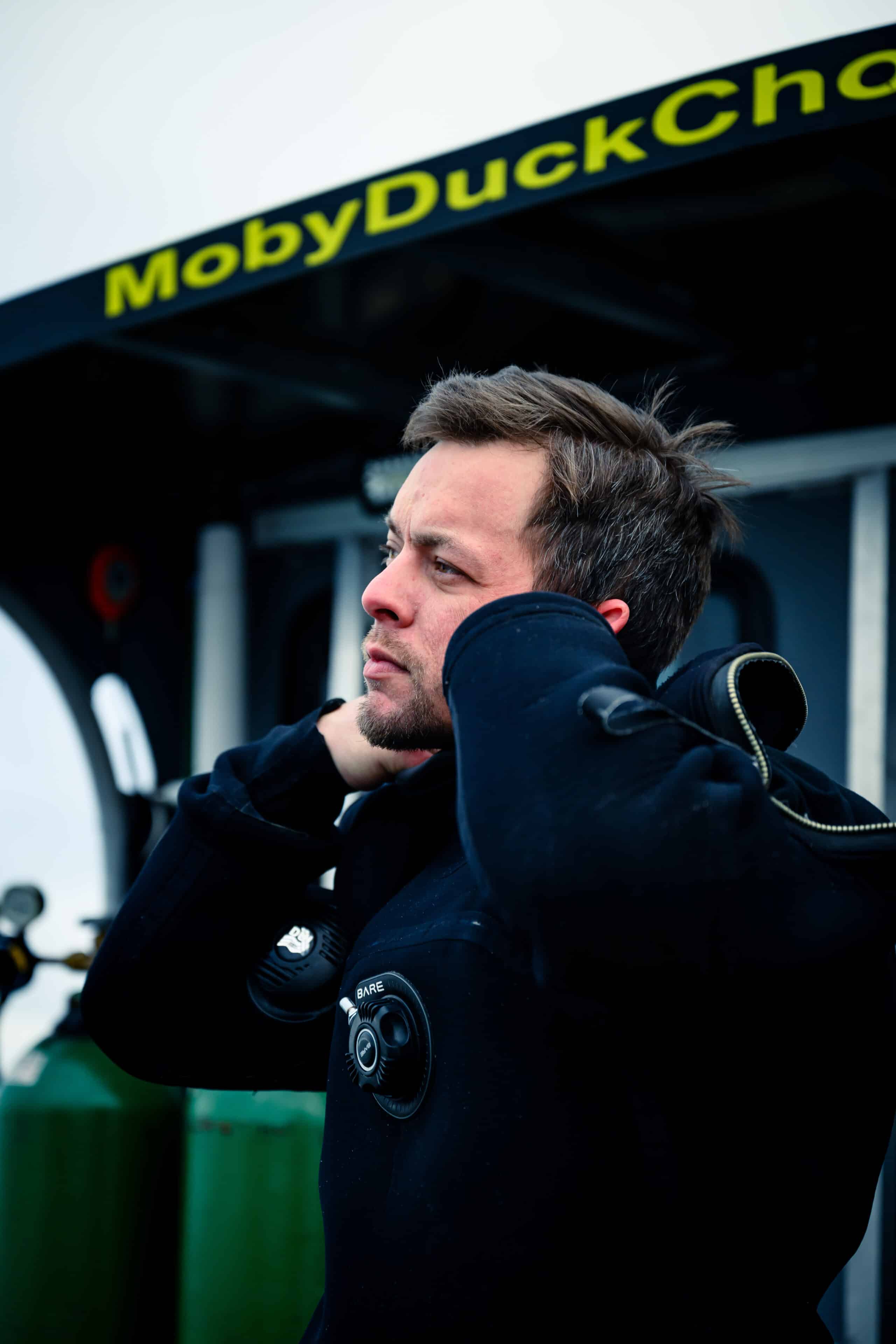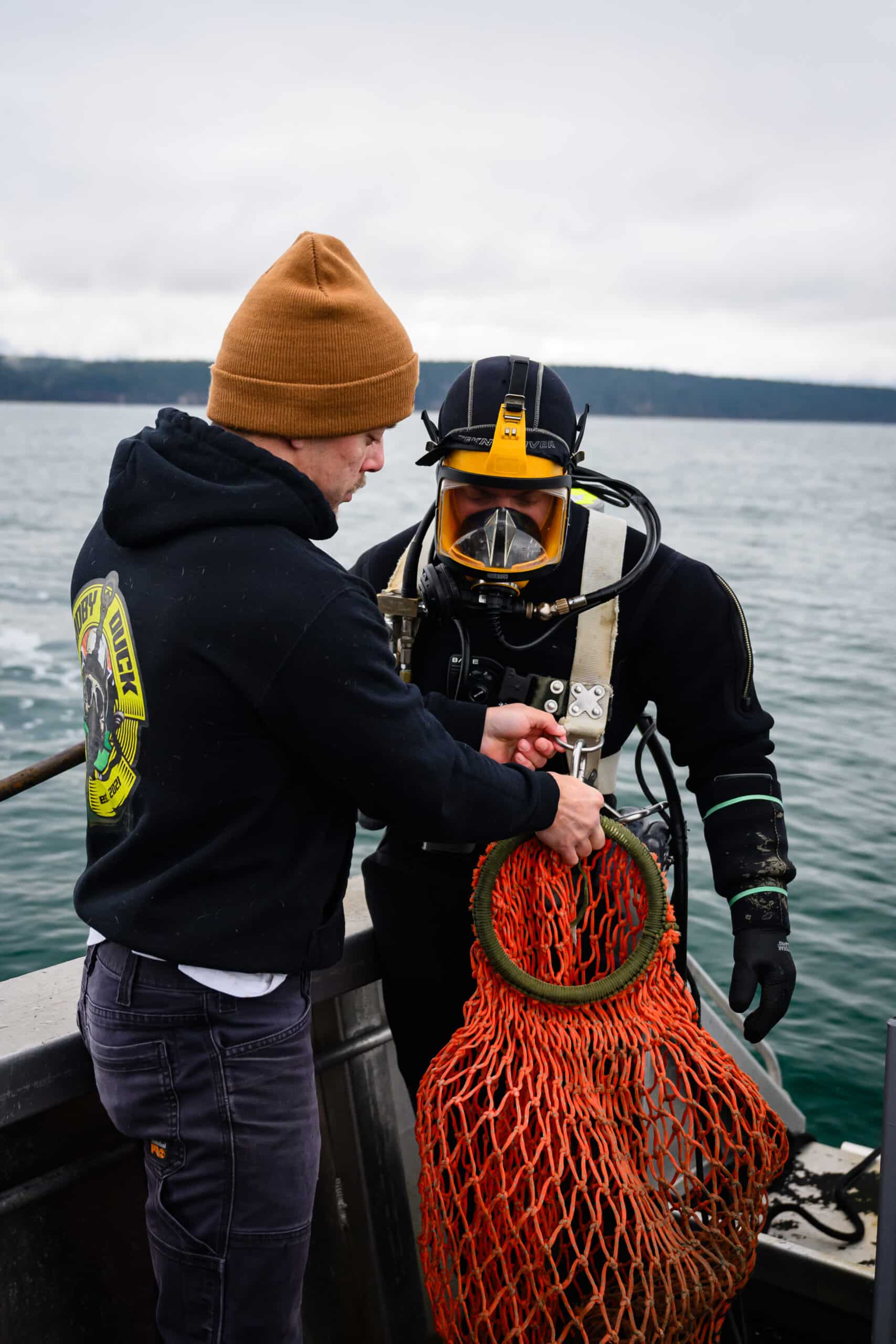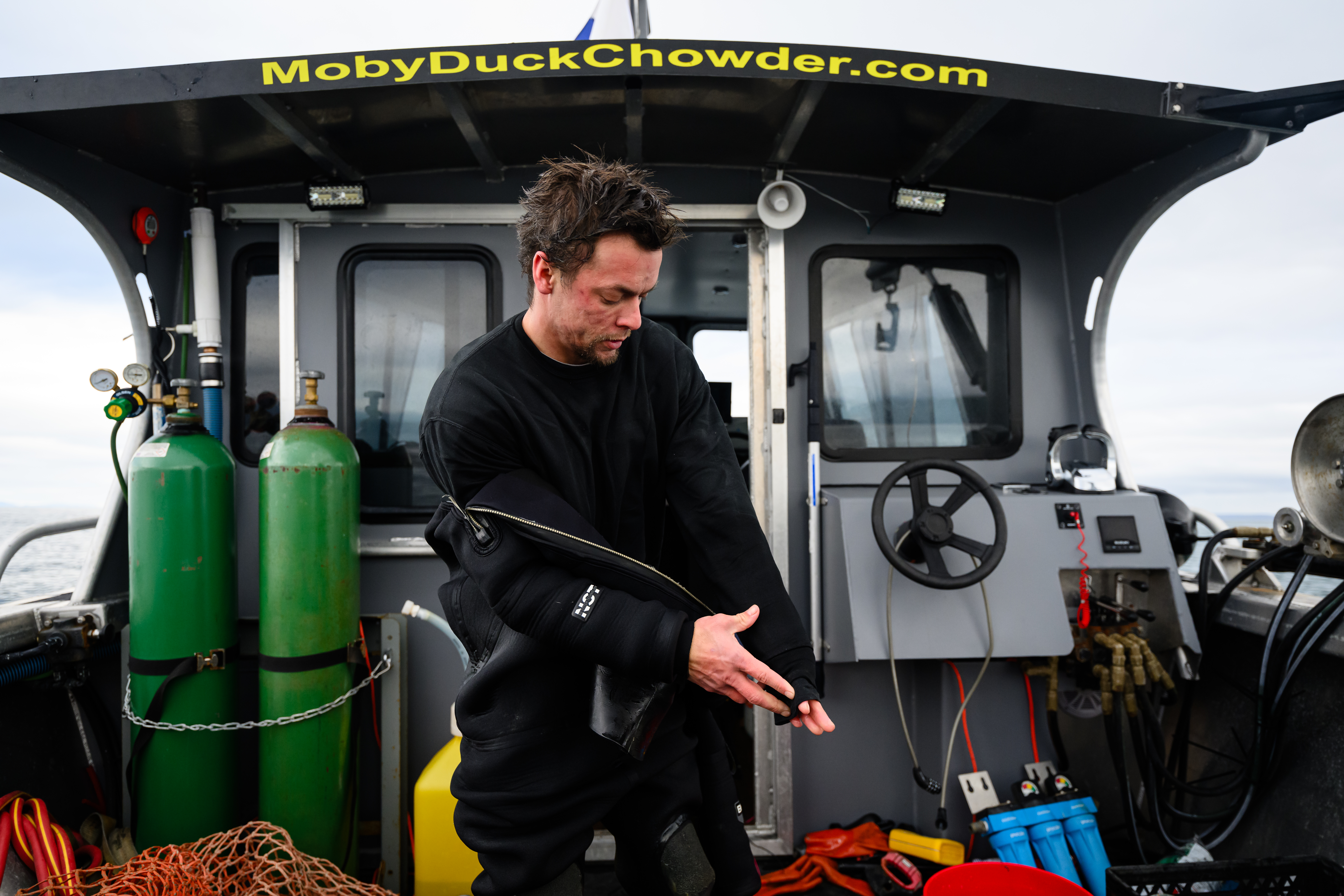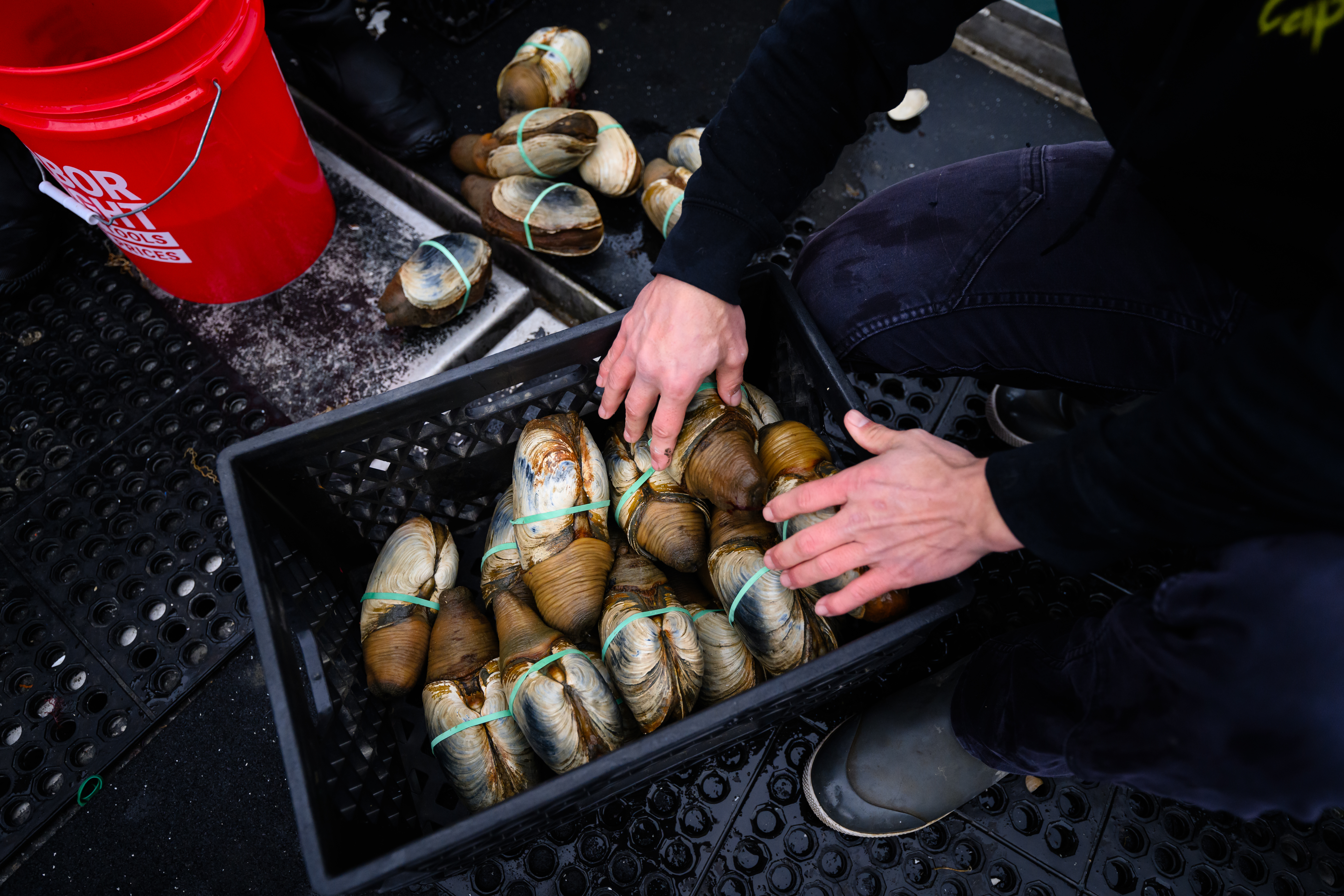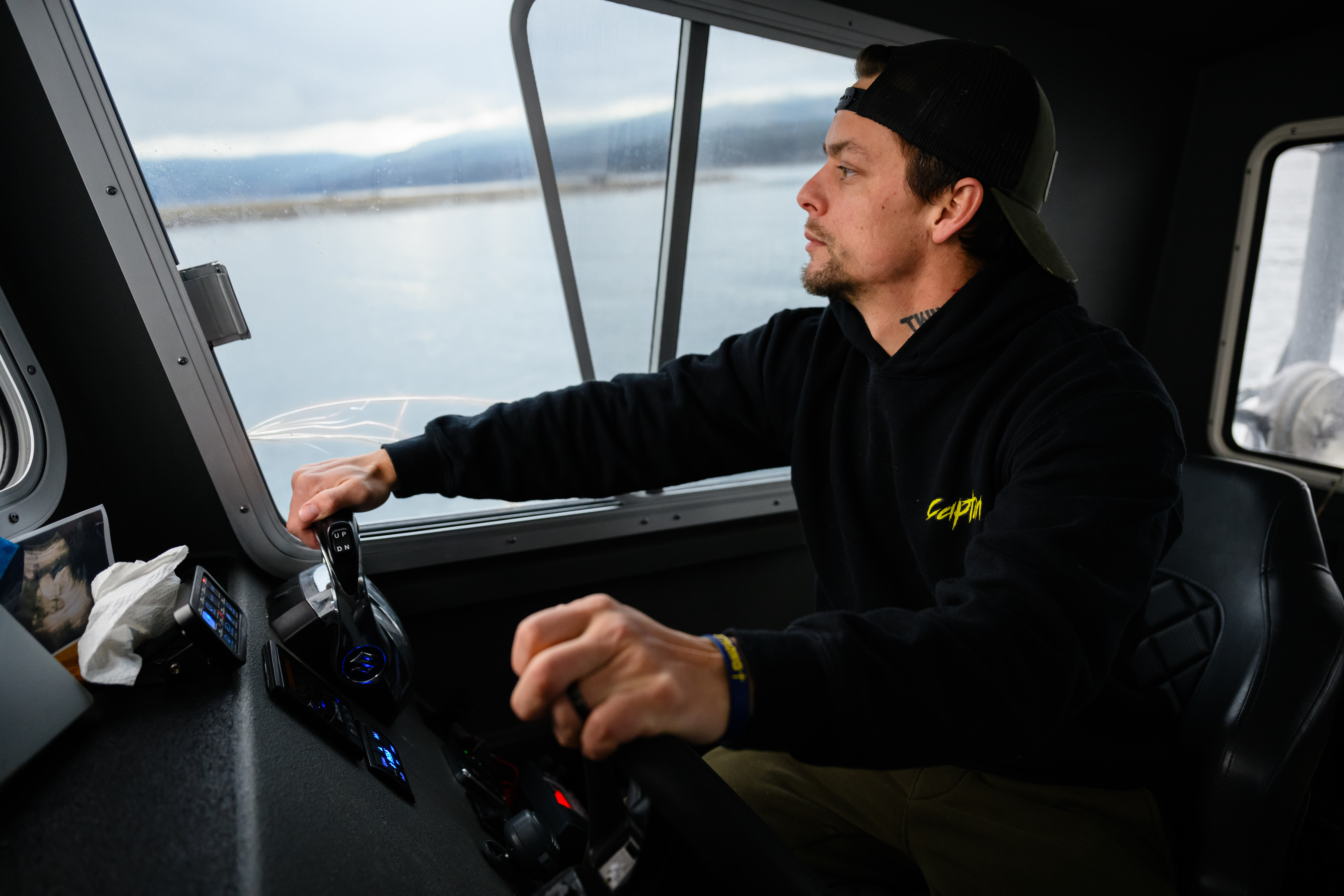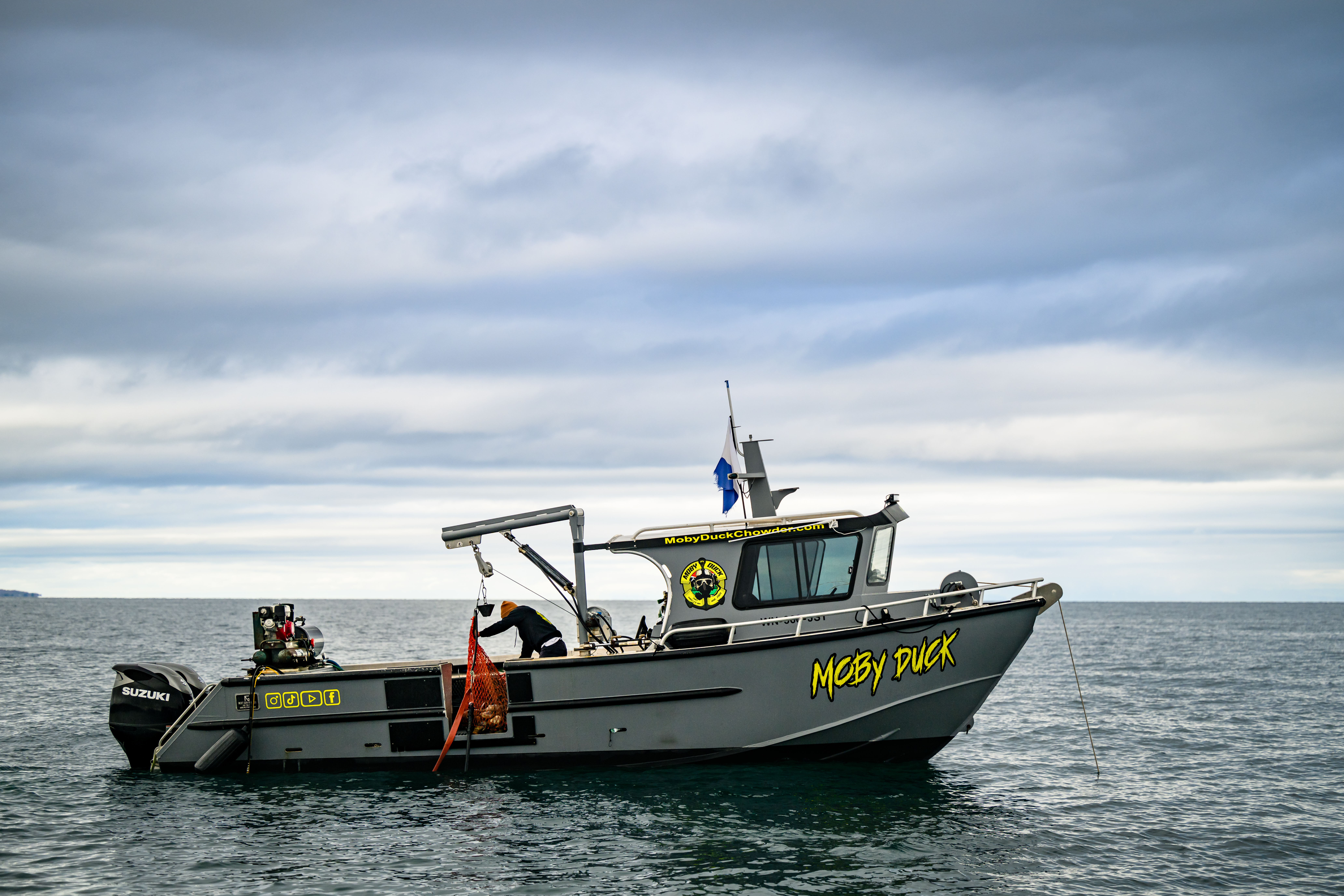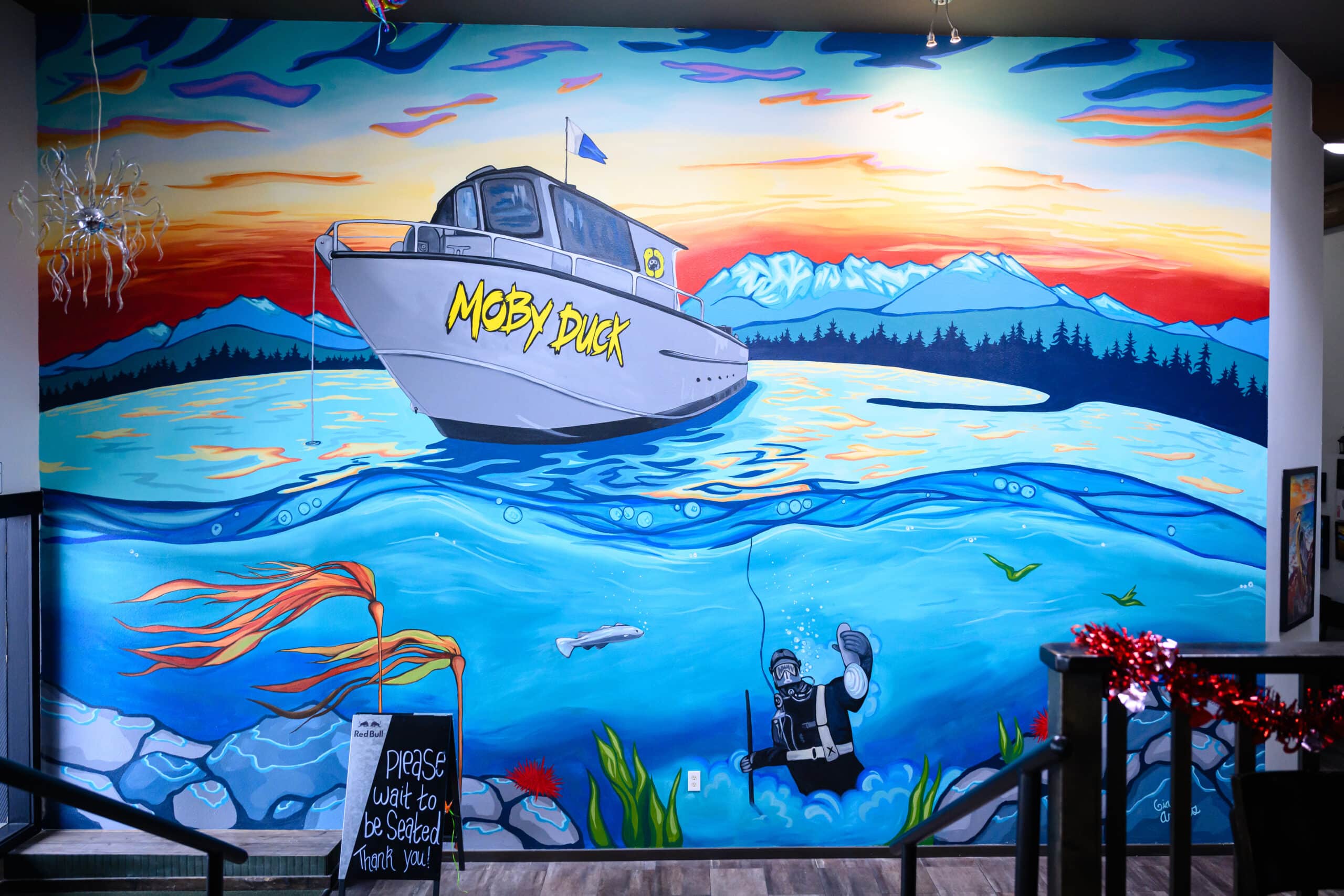Story: Tiffany Royal/Northwest Indian Fisheries Commission
Photography: Jeremy Johnson
This article is part of a series highlighting the vibrant people and industries that make up the working waterfronts of the Maritime Washington National Heritage Area. Dive into more stories from our Working Waterfronts photo series here.
Jamestown S’Klallam tribal citizens and geoduck divers Jeremy and Jason Holden didn’t realize how significant their new seafood business was to their tribe and the North Olympic Peninsula until it opened in late 2023.
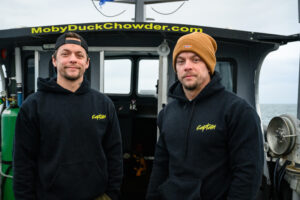
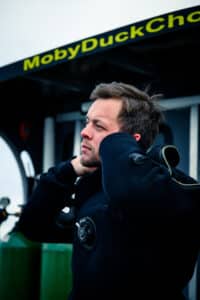
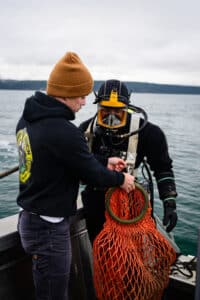
The owners of Moby Duck Chowder and Seafood initially wanted to open a food truck to sell geoduck chowder made from the clams they were harvesting with their dive boat, Moby Duck. The native clam often isn’t for sale locally, as it is regularly harvested and immediately shipped overseas to Asia where it is in high demand.
“We’d get a lot of questions, like ‘Where do we get geoduck?’” Jason said. “You can’t, it just all goes overseas. So finally, it just clicked. ‘Why don’t we just open our own restaurant?’”
The idea of a food truck quickly escalated to a restaurant after securing a waterfront location in downtown Port Angeles. It took three months for the brothers to fill the space with a wall-to-ceiling mural worthy of selfies, procure local art, wine and produce, and hire a chef and staff. They soon were serving their geoduck clam chowder and other inspired dishes such as geoduck fritters and Dungeness crab rolls. “Our vision was that we want people to come in and be like ‘wow,’” Jason said. “We want the food to match the environment. We want people to taste the food, and be like, ‘oh man, this is the best, freshest seafood I’ve had.’”
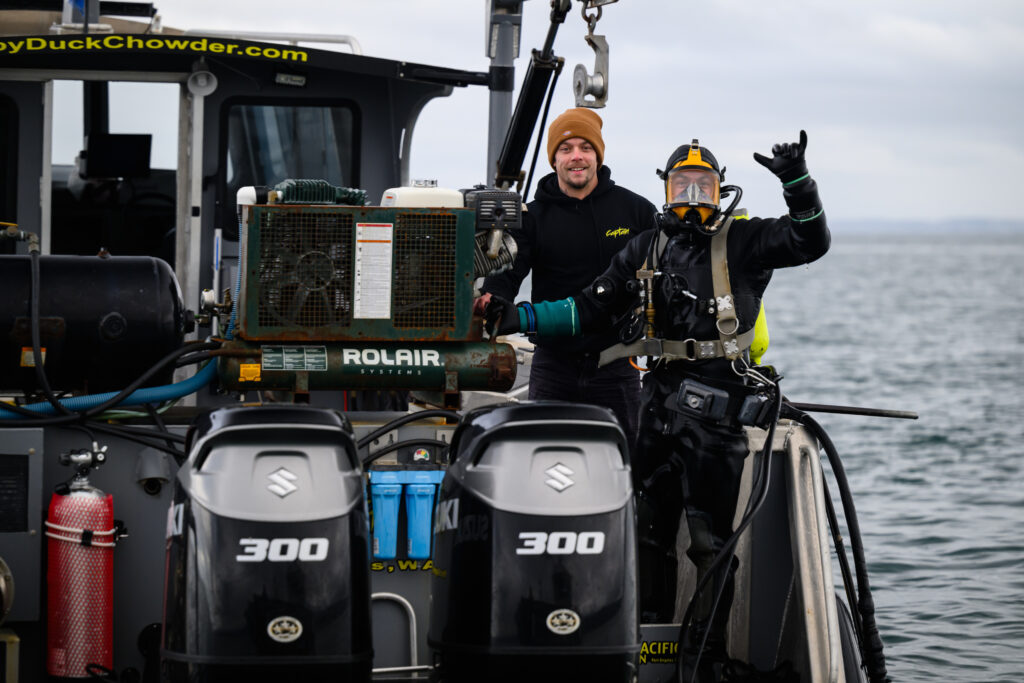
While business has been booming, the bigger takeaway for the Holden brothers has been a better understanding of their tribal heritage. Being descendants of tribal fishermen, it felt natural to them to make a living from fishing. But their perspective changed when someone acknowledged how important it was for tribal members to run a waterfront restaurant serving fresh seafood harvested by the tribe, Jason said.
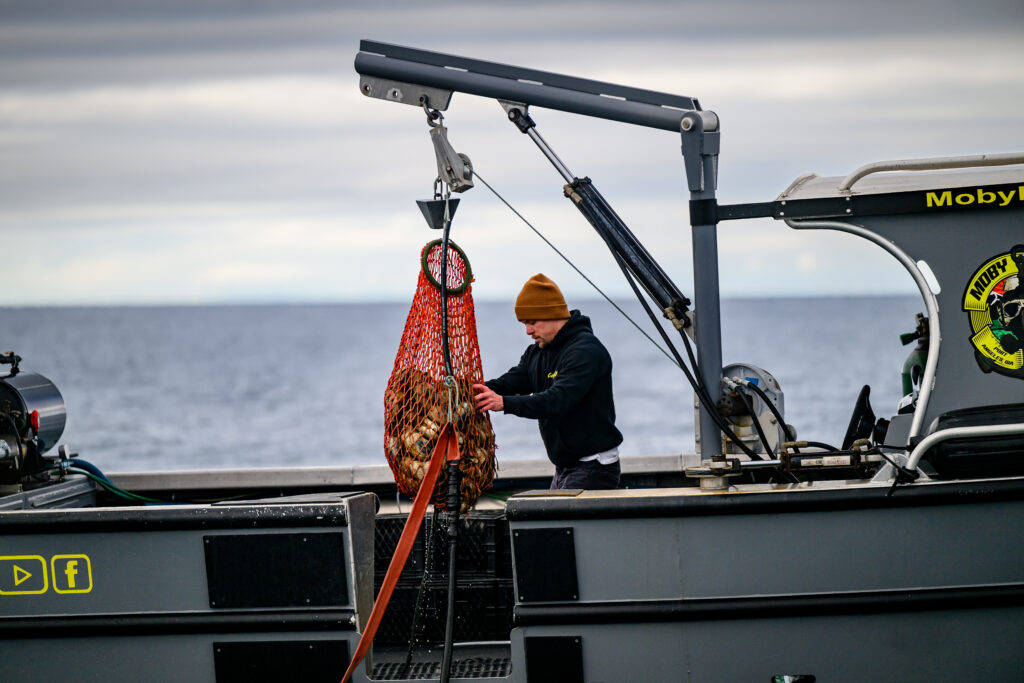
“It kind of opened our eyes because we always just dove; it’s more like a career,” he said. “We knew we were super fortunate to be able to do what we do because of the tribe but it didn’t really open our eyes until we actually opened the restaurant.” Now, they’re embracing that connection by promoting the business as native-owned and creating a wall dedicated to photos and memorabilia of tribal fishermen from all the Klallam tribes. Buoys from tribal fishing boats adorn the walls, and a TV above the bar plays videos of the brothers and other fishermen harvesting seafood. The drinks on the menu are named after boats in the Klallam fishing fleet, such as Matty B Float and Rebecca Ann.
“It’s a lot bigger than us,” Jason said. “We’re representing a whole heritage, our tribe, and all the natives around here.”
The seafood served primarily is harvested by the Holden brothers or their friends and family who are tribal fishermen or shellfish farmers. Clams are from their cousin’s farm in Sequim Bay. They hope to get halibut and cod from by Neah Bay when the season opens. They’re experimenting with sea cucumbers and sea urchin, but “it’s an acquired taste,” Jason said.
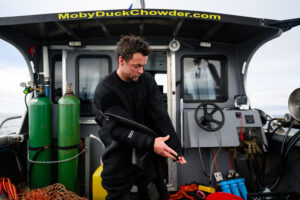
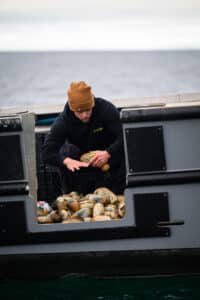
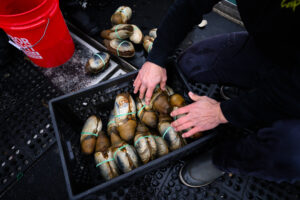
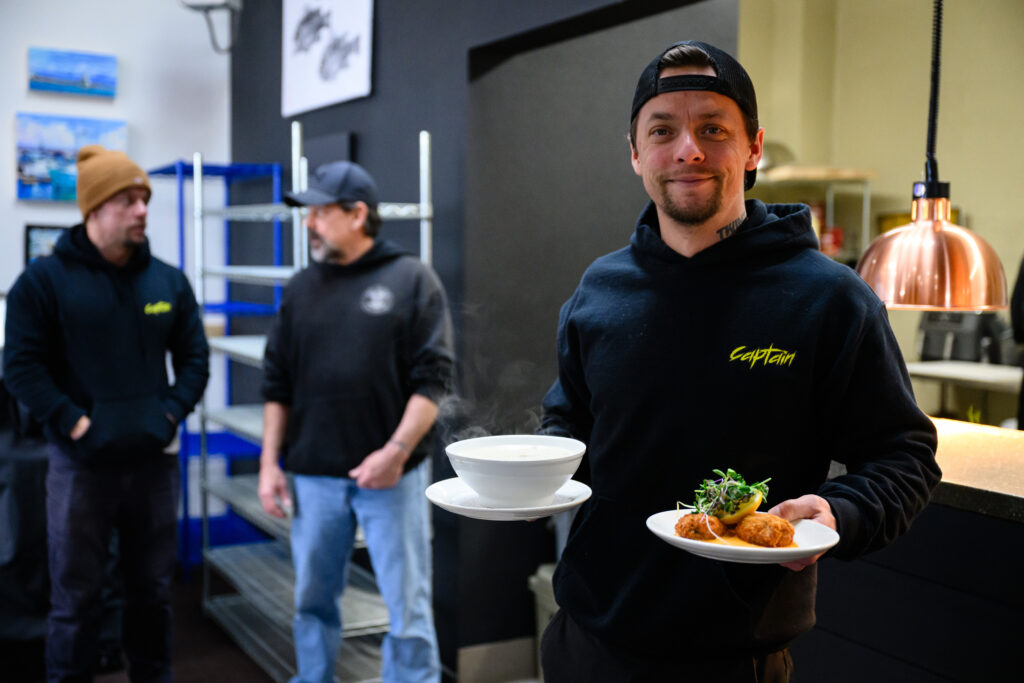
The duo is continually building their network of tribal suppliers for crab, shrimp and salmon as they’re seasonally available, in addition to harvesting geoduck themselves, which they’ve been doing for 15 years.
The twins are third-generation fishermen—their grandfather Marlin Holden operated a small shellfish farm in Sequim Bay for decades, now run by their cousin Jesse Holden. Their father, Dave Holden, was one of the first tribal commercial harvest divers for geoduck in the late 1990s, and started sharing his skills with the boys at a young age. When the boys were older, Dave taught them how to dive off his boat, The Kanchana, then worked with their dad for a decade until the boys purchased The Moby Duck, named after the geoduck.
“It just feels right,” said Jeremy. “I couldn’t do anything else.”
